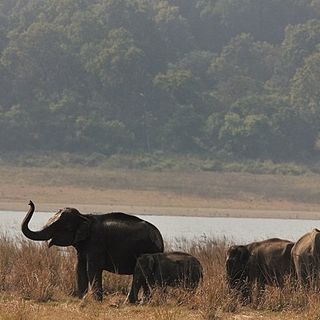At present, 3 billion people are facing water shortages worldwide, with 1.5 billion suffering severe water scarcity, a new United Nations (U.N.) report has found. In fact, fresh water available for each person has reduced by 20% over two decades, due to a combination of climate breakdown, rising demand and poor management of water resources.
Published by the U.N. Food and Agriculture Organization (FAO), the report titled The State of Food and Agriculture 2020 described water scarcity — that is, “the imbalance between supply and demand for freshwater resources,” and water shortages, which is “reflected in inadequate rainfall patterns” — as the present “reality we all live with.”
The report warns water scarcity will lead to growing competition between people, sectors, and even countries, leading to severe inequalities in water access, especially for “the poorest and most vulnerable groups, such as small-scale farmers and women.” In addition, the shortage will also jeopardize the cultivation of accessible, affordable, nutritious food, leading to chronic food shortages for billions of people around the world, and impact individuals and communities, like fisherfolk, who are reliant on water-related ecosystems.
Agriculture is one of the main drivers of the decline in fresh water supply. And fixing is the key to addressing water shortage. “Water shortages and scarcity in agriculture must be addressed immediately and boldly. … As the world aims to shift to healthy diets — often composed of relatively water-intensive foods, such as legumes, nuts, poultry, and dairy products — the sustainable use of water resources will be ever more crucial,” Qu Dongyu, director-general of the FAO, said in the foreword to the report.
Reports suggest that large portions of irrigated croplands around the world are already highly water-stressed; non-sustainable methods of irrigation and poor irrigation management not only leads to the depletion of non-renewable resources such as groundwater, but also farmers losing out on water resources.
Related on The Swaddle:
The Search for Clean Water Puts Women at Risk of Injury Globally: Report
Moreover, while small-scale and farmer-led irrigation systems are typically more environmentally sustainable, the report noted, large agribusinesses are increasingly taking over production as small farmers struggle to secure water rights and access to finance and credit. The growing prevalence of non-sustainable irrigation practices, like tapping directly into groundwater and replenishing the resource, could further exacerbate water shortage.
A new international study published in August also noticed increased water theft with almost 30% to 50% of the world’s water supply currently being stolen each year due to water shortages. India has witnessed a rise in water thefts too in recent years, leading to widespread arrests of farmers engaging in water diversion from canals and dams to their own fields. Experts argue that water theft will become even more common in the future as the climate crisis exacerbates water scarcity.
Still, the report praised India for water governance, lauding the small rainwater storage ponds for supplemental irrigation in West Bengal, for not only increasing crop yields and farmers’ incomes, but also freeing up more water for other uses. India’s conservation agriculture initiatives, characterized by minimum soil disturbance, also “reduced production costs for farmers and increased irrigation water productivity.” Moreover, watersheds in India have reduced sediment loads to the rivers, with large positive impacts on river ecology and the lifespan of reservoirs. And among other things, it also praised an indigenous irrigation automation system called Nano Ganesh, deployed by thousands of farmers across the country. All of these initiatives have helped the country tackle mitigate water shortage.
“A key emphasis of this report is on improved water governance, which
aims at ensuring the most productive use of limited water resources, while safeguarding water-related ecosystem services and ensuring equitable access for all… The starting point for any effective water management and governance strategy should be water accounting and auditing,” Dongyu recommended, warning: “…let us not wait until the well is dry to understand the worth of water.”




